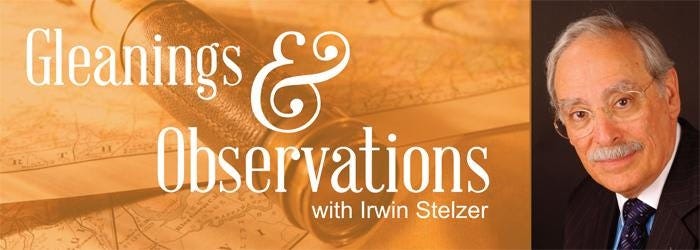Of Milk, Ranges, Cars And Our Government
I’m From The Government And ….
An Internal Revenue Agent who lied his way into a taxpayer’s home using a false name, when told by her lawyer he would be arrested if he did it again, responded, “I am an IRS agent, I can be at and go into anyone’s house at any time I want to be.” When local police called the IRS agent, he had the Treasury department investigate the officer. Saddest of all, it seems the agent has the power he claimed, at least in the case of a criminal investigation.
What’s Cooking
When the administration denied that it had any plans to seek legislation outlawing gas ranges, the regulators went to work, along with state governments. The installation of gas ranges in new homes is now illegal in many places, and new standards make the manufacture of such ranges difficult and expensive. No legislation necessary. Not even an executive order. Merely an order by an unelected regulator.
Fine cooking, RIP say celebrity chefs, one of whom received an exception to the ban by threatening to move his restaurant out of Palo Alto “if forced to compromise the caliber of its cuisine…and complex flavors”. Having lost their favourite bank, the town’s venture capitalists promptly lobbied to retain their ability to dine and deal in a favorite eatery.
Ford EVs Get A Charge
Ford has received a $9.2 billion loan from the Energy Department to finance battery plants for its EVs. The company lost $2 billion last year because, as the WSJ reports, “it spends about $7 billion to $8 billion more each year than rival car companies." Ford’s EV business is expected to lose $3 billion in operating profit this year says CEO Jim Farley, even after large layoffs of executive personnel – presumably, the unionized workforce remains intact, either out of necessity or to avoid antagonizing the company’s new bankers, Biden & Co, unlimited.
One Thing Leads To Another
Meanwhile, to accelerate Ford’s introduction to black ink and increase the possibility the loan will be repaid, the government is tossing $5 billion of taxpayer money over five years into the pot to help states construct a network of charging stations every fifty miles in Alternative Fuel Corridors the states will designate.
It is also expanding the sorts of companies eligible for subsidies under the Chips Act to include not only makers of chips but tool and chemical suppliers who provide the materials needed to make the chips. No date has yet been set to make subsidies available to companies that make the stuff needed by the companies who make the stuff chip makers need.
Meanwhile back in the private, non-union sector of the economy Tesla stock soars and Ford, along with Rivian and General Motors, join in adopting Tesla’s North American Charging Standard. Presumably the stations built with government funding will adopt that standard, too. Why the government has to enter this business is uncertain – the private sector succeeded in building all the gas stations the auto industry needed to provide the fuel of preference to the driving public.
The Milk Of Government Kindness
A House committee has approved a bill that would allow schools to offer whole and 2 per cent milk. Proponents, including the dairy industry, say children prefer the taste and would drink more milk, opponents that the fat is unhealthy. Schools accepting government subsidies are advised the children should be offered only non-fat or 1 per cent fat milk, and the Agriculture Department is deciding whether to eliminate flavoring since children prefer chocolate milk which contains sugar. That would add chocolate to fat and salt, items that would, in the end, send those students who could afford it to the pizza parlor or the burger joint instead of the school lunchroom. Beer might be a safe substitute for milk – no salt, no sugar, no fat. Or a cola drink (alleged to increase the risk of type 2 diabetes and other ills). Perhaps best to let children have the milk they are willing to drink.


